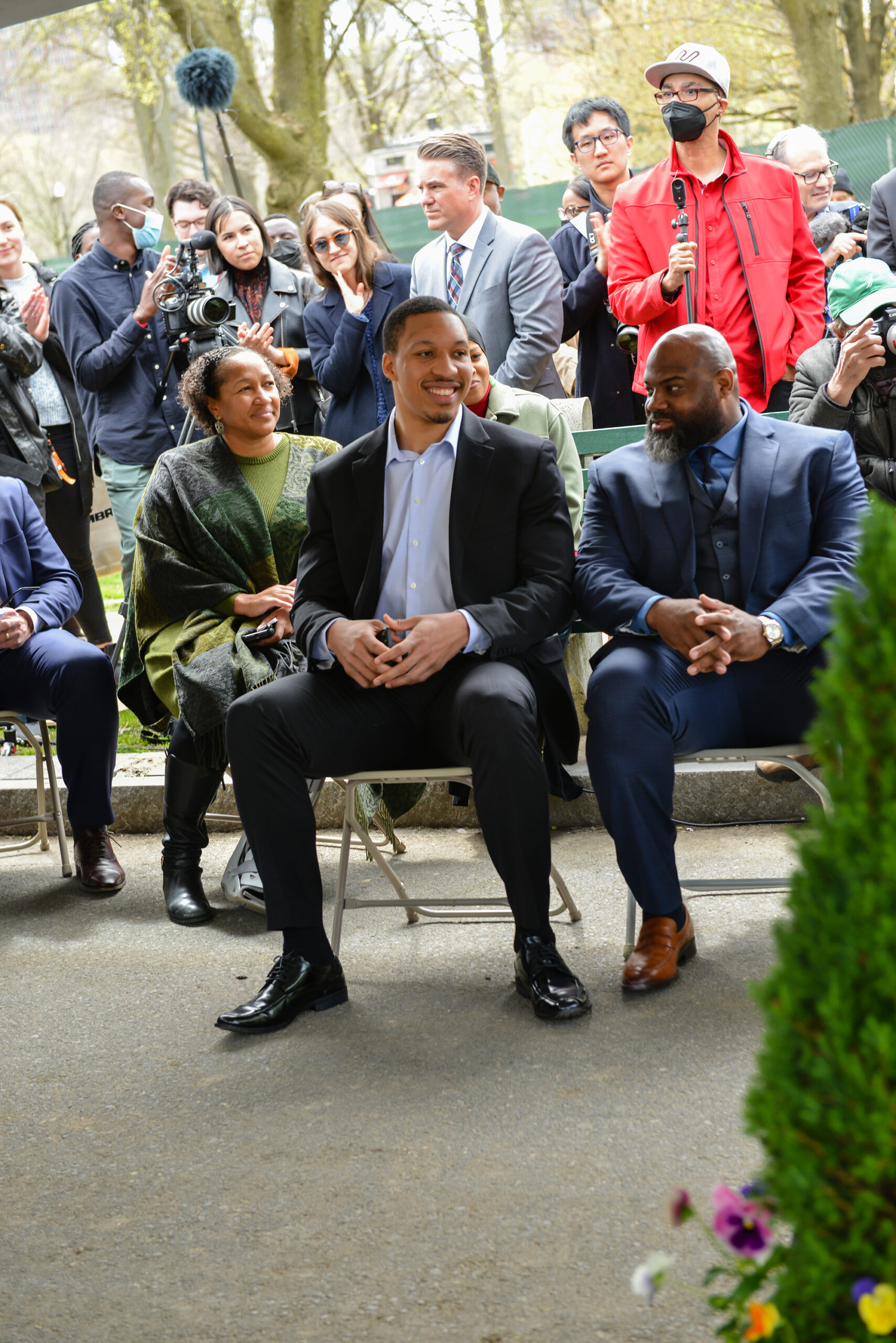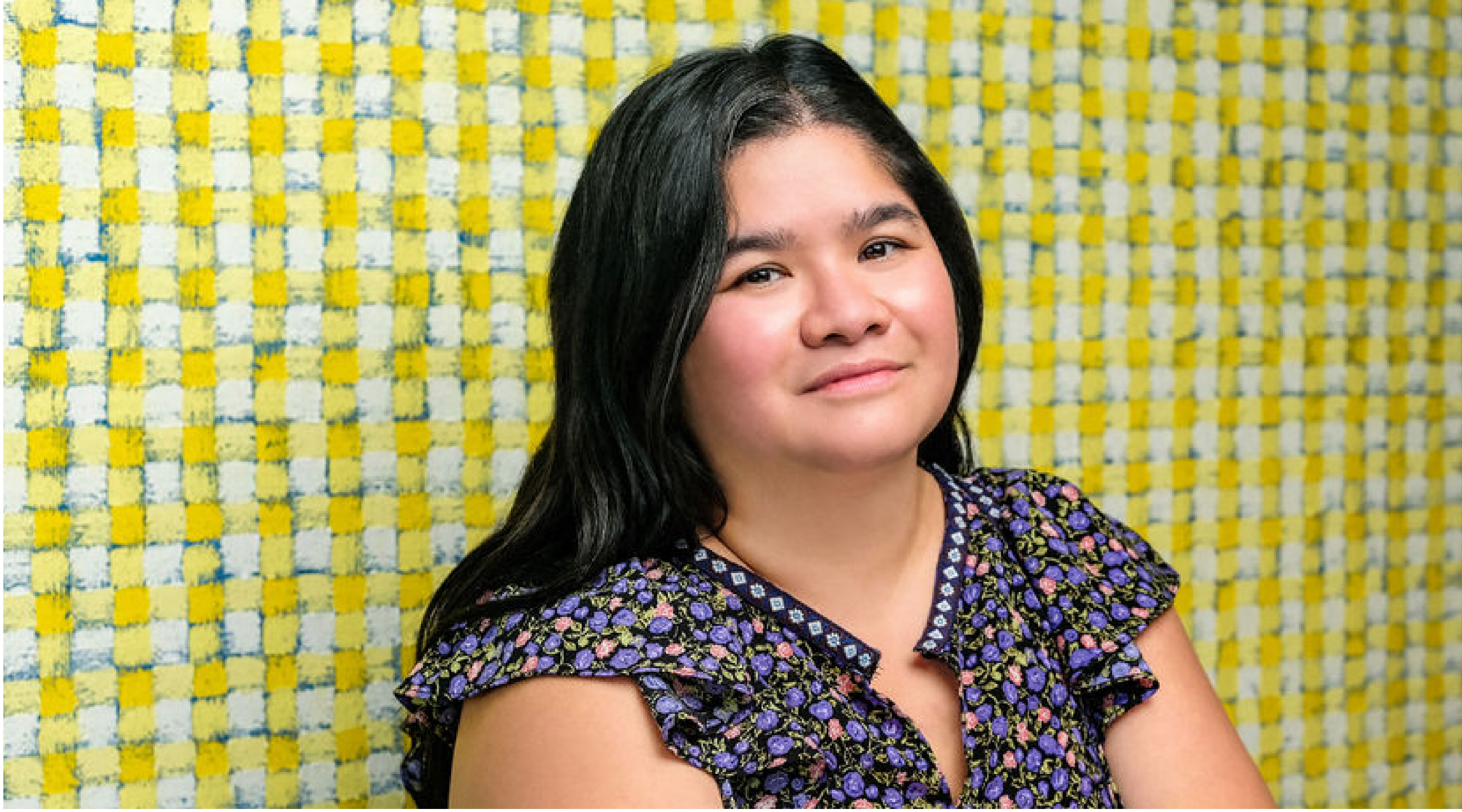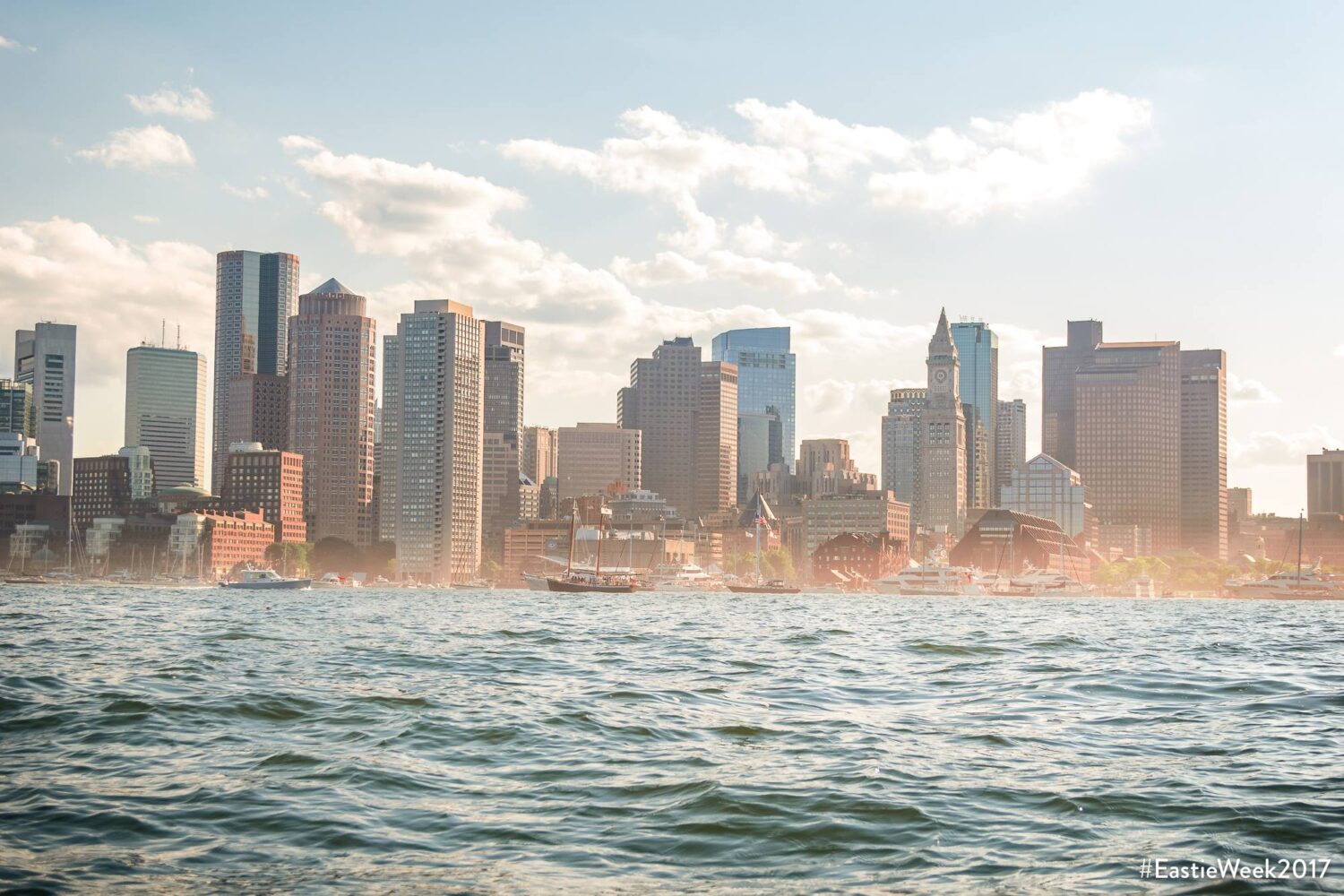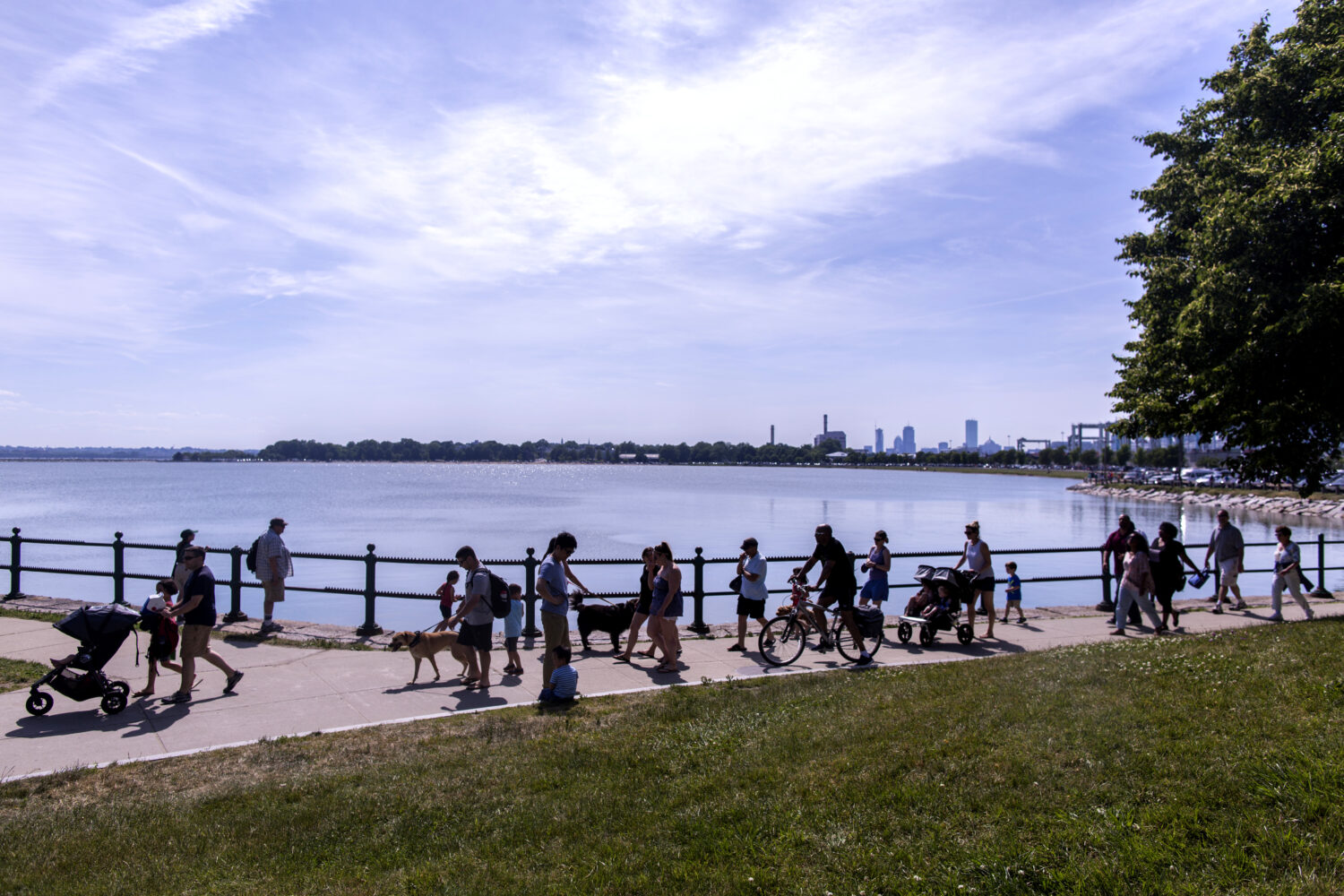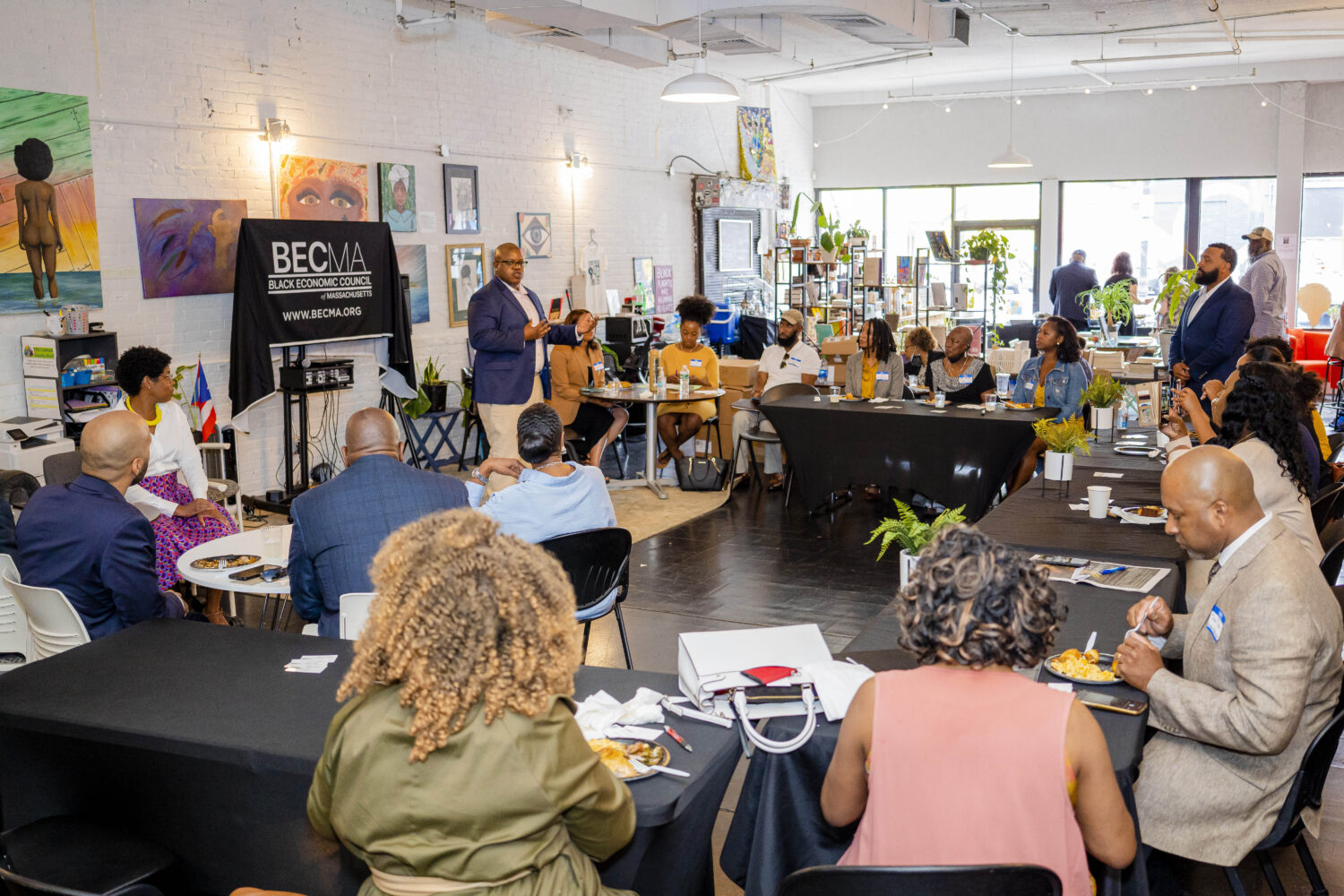What attracted you to the role of Director of Racial Wealth Equity at Barr Foundation?
Prior to Barr, most of my career had been in community—city-based coalition work, state-wide coalition work, and policy development from housing to electoral throughout Massachusetts. I worked with organizations that were deeply grounded in community support for those most impacted by systemic inequity. I knew I wanted to continue to do work that was making an impact. I wanted to support people who want to be leaders and help build wealth in these communities. I deeply resonate with Barr’s core values particularly taking the long view, embrace risk, and demonstrate curiosity.
What engages you most about the work?
Looking at the ecosystem from a different lens is exciting. When you’re an executive director of an organization, you’re in the thick of it and your vision is laser focused on how to accomplish the mission. In that role, I believe it’s important to maintain a degree of tunnel vision to successfully navigate the terrain in which your organization is working. But as the Director of Racial Wealth Equity at Barr, I’m zooming out to see how we can support systems change. From this angle, the possibilities loom larger than the obstacles. That’s a welcomed shift in perspective.
Why do you think now is the time for marked progress in racial wealth equity?
We are seeing the real cost of long-term divestment in many of our communities across Massachusetts and how it has impacted the people of those communities. Many cities have experienced drastic gentrification—it’s been extractive in almost every way as some populations could no longer afford to remain in these neighborhoods. It’s clear that much of the advocacy work to address divestment to date, although of incredible importance, has been aimed at responding to what happened rather than developing new solutions. And the events of 2020 revealed opportunities to approach things differently. At Barr, we believe one way to do things differently is to address the systems that have limited the creation of wealth in these communities.
To support the development of the strategies for Barr’s Racial Wealth Equity Initiative, you conducted a listening tour with over 70 participants. What were the key takeaways from those discussions?
I was amazed by the level of creativity these organizations and leaders have employed. It reminded me that you’re most creative when you have no resources. It affirmed that we won’t achieve racial wealth equity merely by helping individual organizations help individuals and families overcome barriers. We need to remove those barriers and create new pathways to prosperity, new avenues to build community wealth—in other words, we need systems change. The ecosystem may not be ready for the change, but we can play a role in supporting that readiness. It’s time to find the people and organizations who are doing incredible work but might not have a partner like Barr that can help expand their capacity and reach.
Projecting into the future, what does success in racial wealth equity in Massachusetts look like to you?
Eliminating the wealth gap is a generational problem and it’s going to take seismic shifts on all levels, from local to federal, to fully close the gap. With that in mind, being in partnership with and supporting coalitions and organizations that can push policy changes in Massachusetts and beyond is critical. With those relationships in place, a win could be a new funding stream, dedicated funding towards community control of land, or an increase in cooperative models. Implementing solutions that put wealth building power directly back into the communities that have been most impacted by divestment—that would signal success.
What is one bright spot in New England that you think everyone should know about and why?
One of my favorite neighborhoods in Boston is Fields Corner. When we talk about diversity and the beauty of multicultural community, Fields Corner is it. Vietnamese, Somali, Irish, and Cape Verdeans live in this small neighborhood. All their culture, food, joy, and pride swirls together and shines from every corner. It’s a microcosm of what Boston claims to be. Communities like these exist in Worcester, New Bedford, and Providence too…these communities are the bright spots across New England.
